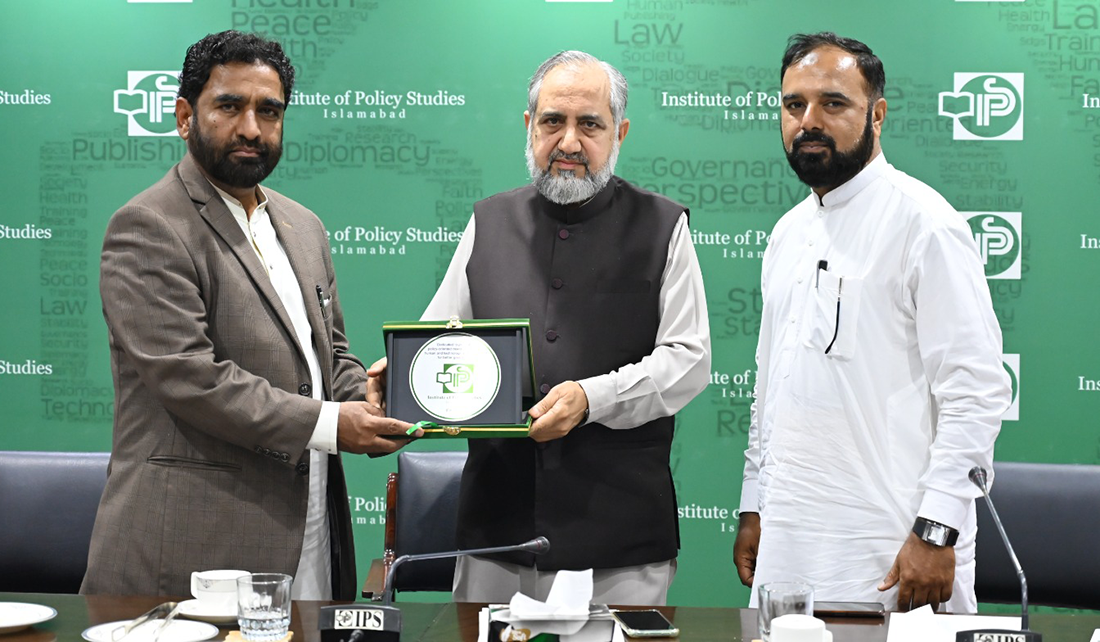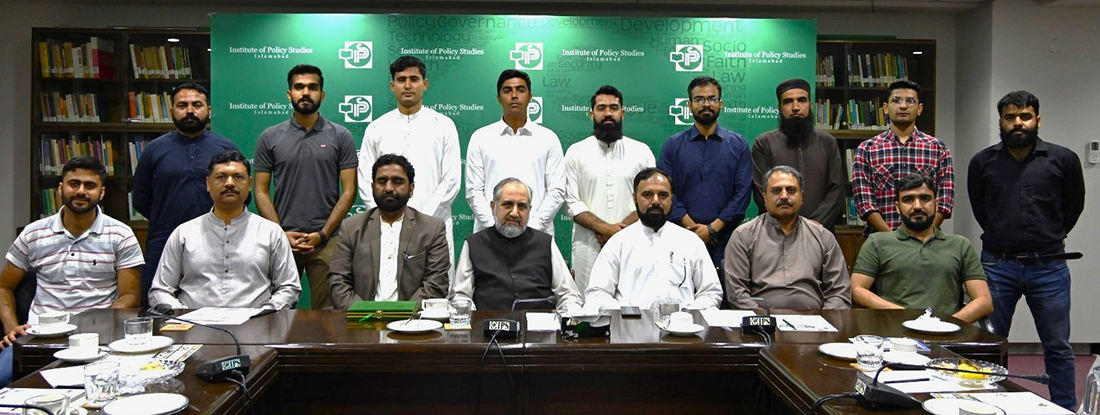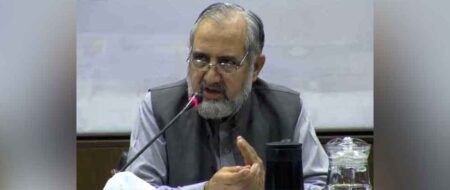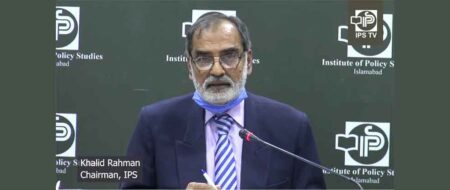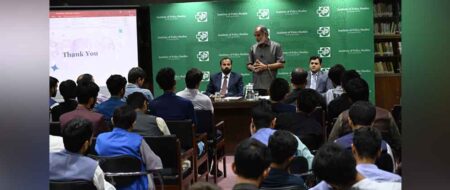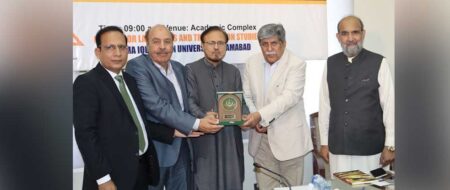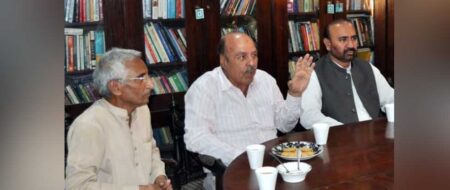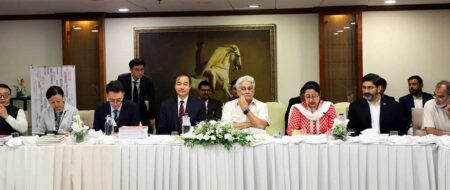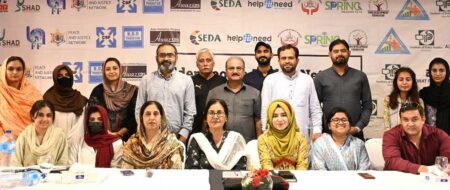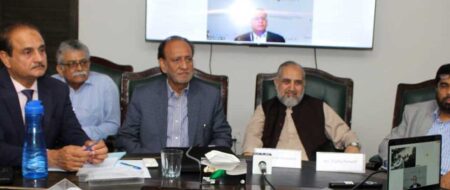Pakistan’s response to global events, regional stability discussed
Pakistan must strive to become economically and politically stable, forge better economic relations with regional countries, and create economic stakes for neighboring states.
This was discussed during an interactive session with the delegation of participants of the 39th Human Resource Development Program (HRDP), organized by Dawah Academy for the officers of the armed forces of Pakistan, who visited IPS on May 15, 2024.
The visit aimed to introduce the professionals to the operation and role of think tanks in the policymaking environment of a country.
The visiting delegation, headed by Dr Abdul Fareed Brohi, chairperson training department, Dawah Academy, was addressed by Ambassador (r) Syed Abrar Hussain, vice chairman, IPS, and Syed Nadeem Farhat, senior research fellow, IPS.
Nadeem Farhat introduced the delegates to IPS’ background, areas of research, contributions to different national and global issues, and strong institutional relationships and linkages with several universities and educational institutions in Pakistan and abroad to facilitate research on a variety of policy-oriented topics.
Sharing insights about Pakistan’s geopolitical importance, Ambassador Abrar emphasized its strategic location as a major transit route and its nuclear capability, underscoring its significance for regional security and stability.
He stressed that Pakistan cannot be overlooked in the pursuit of regional stability, particularly considering its resource potential and the economic opportunities presented by the China-Pakistan Economic Corridor (CPEC).
The session delved into recent global developments, including the withdrawal of US forces from Afghanistan, the Russia-Ukraine conflict, the Iran-Saudi rapprochement, Israel’s war on Gaza, the US-China rivalry, and India’s Hindutva-driven policies. Moreover, he analyzed Pakistan’s response to these developments, noting its efforts to maintain neutrality and balance amidst complex geopolitical dynamics.
Regarding the situation in Afghanistan post-US withdrawal, it was highlighted that while Pakistan extended support, there has been an increase in security concerns within Pakistan, including a 73 percent increase in terror attacks in 2023, with the Tehreek-e-Taliban Pakistan (TTP) reportedly gaining strength.
In response to the Russia-Ukraine war, Pakistan maintained a neutral stance, successfully avoiding alignment with any party involved. Similarly, the Iran-Saudi rapprochement provided Pakistan with the opportunity to remain impartial in regional conflicts.
Raising concerns over the humanitarian crisis unfolding in the Israel-Gaza war, Ambassador Abrar noted that over 35,000 Palestinians have been killed so far. The immediate consequence is the visible destruction, but in hindsight, it stopped the effect of the Abraham Accords under which Arab countries had started recognizing Israel. Moreover, the myth of Israel’s invincibility and advantage of the Iron Dome vanished with this war and the Palestinian issue re-emerged on a global scale like never before. For instance, a resolution for Palestine’s UN membership received an overwhelming 143 votes from member countries.
He further noted that although Pakistan could not actively support Palestine, it gives vocal diplomatic support to Palestine at the UN, along with legal support to South Africa’s case against Israel as well as humanitarian assistance.
In the context of the US-China rivalry, Pakistan maintained a stance of non-alignment, refraining from joining any camp.
Moreover, concerns were raised over the aggressive posture of India’s Hindutva ideology, which could have alarming implications for non-Hindus after the probable BJP victory in the current elections. He likened this stance to the events leading to Pakistan’s establishment, such as the Shuddhi and Sangathan movements in the 1920s.
In light of these developments, the speaker underscored the importance for Pakistan to avoid aligning with specific camps, prioritize economic and political stability, enhance regional economic cooperation, and adopt a rational approach in its foreign policy decisions.
This was followed by a question and answer session with the delegates. At the end of the session, Dr Fareed Brohi thanked IPS and its team for an impactful interaction with the officers and for hosting them.
